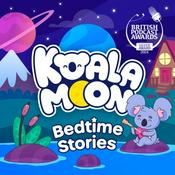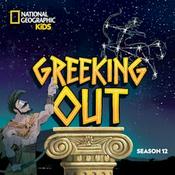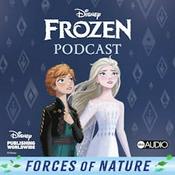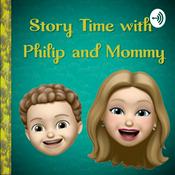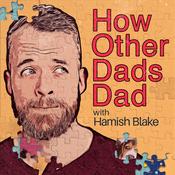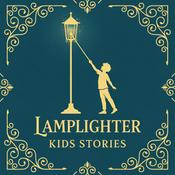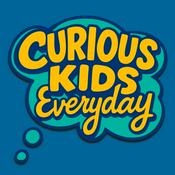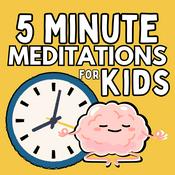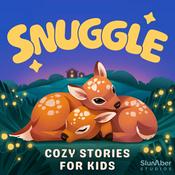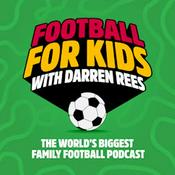1451 episodes
- What if your child’s resistance isn’t laziness… but fear?
In this heartfelt Friday “I’ll Do Better Tomorrow” episode of the The Happy Families Podcast, Justin and Kylie unpack a powerful parenting moment: an 11-year-old who didn’t want to try the 6am surf class — and the surprising truth behind her pushback.
This episode is about competence, courage, friendship, and why slowing down might be the most important thing we do for our kids (and ourselves).
If you’ve ever pushed, pulled, or panicked when your child resisted something new — this one will land.
KEY POINTS
Why “I don’t want to” often masks “What if I look dumb?”
The hidden power of friendships in building confidence
How to use a “soft entry” instead of forcing commitment
The sweet spot of growth (hello, zone of proximal development)
Why parents need protected, screen-free stillness
The family lesson we forgot after COVID
QUOTE OF THE EPISODE
“Sometimes our kids’ trepidation is less about the activity… and more about feeling incompetent.”
RESOURCES MENTIONED
Justin’s books and parenting resources at happyfamilies.com.au
Research behind capability, autonomy and competence (Self-Determination Theory)
ACTION STEPS FOR PARENTS
Offer a one-time trial instead of a full commitment
Look for the fear underneath the resistance
Pair new challenges with trusted friends
Protect one quiet hour this week — no screens, no rushing
Let your child grow at the edge of their capability, not beyond it
See omnystudio.com/listener for privacy information. - When your child says “I can’t do this” and wants to quit right now… what do you do?
Whether it’s maths, piano, friendships, or riding a bike, kids hit the wall. They avoid. They melt down. They take their bat and ball and go home.
But what if that uncomfortable moment isn’t failure… it’s the doorway to growth?
In this episode, we unpack the powerful reframe that helps kids push through frustration, build resilience, and experience real progress — without shame, pressure, or lectures.
This one shift changes everything.
KEY POINTS
Why avoidance feels good — and why it holds kids back
The two dimensions of emotion and what they mean for learning
The “Learning Zone” reframe that transforms frustration
Why purpose matters more than pressure
The three drivers of motivation: relationships, choice, and competence
Why discomfort is often the signal that growth is about to happen
When pushing through is healthy — and when it’s not
QUOTE OF THE EPISODE
“Discomfort isn’t the enemy. It’s the signal that growth is about to happen.”
RESOURCES MENTIONED
Man's Search for Meaning – Viktor Frankl
ACTION STEPS FOR PARENTS
Check relevance first – Does this challenge actually matter?
Name the Learning Zone – Help your child recognise discomfort as growth.
Strengthen connection – Struggle feels heavier when kids feel alone.
Support competence – Break tasks into smaller wins.
Focus on purpose – A strong “why” makes the “how” bearable.
See omnystudio.com/listener for privacy information. - Teenagers are riding at 70km/h with no helmets. Police are investigating. Communities are furious. Parents are terrified.
E-bikes are everywhere — and the debate is explosive. Is this about reckless teens? Bad laws? Or something far closer to home?
In this episode, Dr Justin Colson from the Happy Families podcast unpacks the real issue behind the headlines. It’s not just about e-bikes. It’s about freedom, responsibility, and the parenting conversations we’re either having… or avoiding.
Because banning them won’t fix it.
But shrugging won’t either.
If you’ve got a risk-taking teen — or one who soon will — this is a conversation you need to hear.
KEY POINTS
Freedom without responsibility becomes a free-for-all
Risk is essential for development — recklessness is not
Pedal-assist bikes and throttle bikes are not the same
Legislation won’t solve what parenting must address
Teens chase status, thrill and belonging — not danger
The real missing ingredient is consideration
QUOTE OF THE EPISODE
“Freedom isn’t the same as a free-for-all. The real issue isn’t the e-bike — it’s whether we’re teaching our kids what freedom requires.”
ACTION STEPS FOR PARENTS
Have the deeper conversation.
Not just “be careful.” Ask: Who could you hurt? What does sharing space mean?
Differentiate risk from recklessness.
Climbing trees builds capability. Blowing through traffic signals destroys trust.
Talk about invisible impact.
Help them imagine the pedestrian, the driver, the nurse in emergency.
Channel thrill safely.
Structured sport, competitions and supervised challenges can meet the same need.
Stay connected.
Consequences matter — but relationship influence matters more.
See omnystudio.com/listener for privacy information. - Your child lies. You catch them. They double down. Now what?
When an 8-year-old swears they didn’t sneak the TV or the treats (even with chocolate on their face), most parents panic about what it means for the future.
In this episode of The Happy Families Podcast, Justin and Kylie explain why lying is normal, why punishment makes it worse, and how to respond in a way that builds honesty instead of fear.
If you want truth without tears, this conversation changes everything.
KEY POINTS
Lying is a developmental milestone, not a moral collapse.
The harsher the punishment, the better kids get at hiding.
Shame damages relationships and kills honesty.
Most lies are about avoiding trouble or getting access to something they want.
The goal isn’t catching kids out — it’s solving the problem together.
You’ll have this conversation again and again. That’s normal parenting.
QUOTE OF THE EPISODE
“Lying is not a moral crisis. It’s a teachable moment.”
RELATED RESOURCES
#846 An Honest Conversation [podcast episode]
ACTION STEPS FOR PARENTS
Stay calm. Avoid lectures and threats.
Say what you see instead of asking trap questions.
Make it safe to tell the truth.
Explain your concerns (health, sleep, fairness).
Collaborate on a plan everyone can live with.
Repeat the conversation as often as needed.
Submit your tricky question at happyfamilies.com.au
See omnystudio.com/listener for privacy information. - We tell ourselves it’s about safety.
But what if tracking our kids is quietly costing them confidence, independence… and trust?
With apps like Life360 becoming the norm, many parents are asking: Are we protecting our children — or projecting our anxiety onto them?
In this episode, we unpack what constant monitoring does to developing autonomy, whether location-sharing normalises surveillance, and how to balance safety with healthy independence.
If you’ve ever checked the app “just in case,” this conversation might change how you see it.
KEY POINTS
Why over-monitoring may increase anxiety — for parents and kids
The developmental cost of constant surveillance
How tracking impacts trust, autonomy, and competence
When location sharing can work — and when it crosses a line
The difference between safety conversations and safety control
QUOTE OF THE EPISODE
“When parents outsource their anxiety management to technology, children pay the developmental price.”
RESOURCES
Lenore Skenazy – Free-Range Kids
Let Grow movement
Claire Rowe (psychologist & parenting writer)
Should We Be Tracking Our Kids? [Article]
ACTION STEPS FOR PARENTS
Ask yourself: Is this about safety — or my anxiety?
Replace monitoring with problem-solving conversations.
Gradually expand your child’s freedom in age-appropriate ways.
If using location sharing, make it mutual and transparent.
Focus on teaching capability, not controlling outcomes.
See omnystudio.com/listener for privacy information.
More Kids & Family podcasts
Trending Kids & Family podcasts
About Dr Justin Coulson's Happy Families
The Happy Families Podcast with Dr. Justin Coulson is designed for the time poor parent who just wants answers now. Every day Justin and his wife Kylie provide practical tips and a common sense approach to parenting that Mums and Dads all over the world are connecting with. Justin and Kylie have 6 daughters and they regularly share their experiences of managing a busy household filled with lots of challenges and plenty of happiness. For real and practicable advice from people who understand and appreciate the challenges of a time poor parent, listen to Justin and Kylie and help make your family happier.
Podcast websiteListen to Dr Justin Coulson's Happy Families, Australian Birth Stories and many other podcasts from around the world with the radio.net app
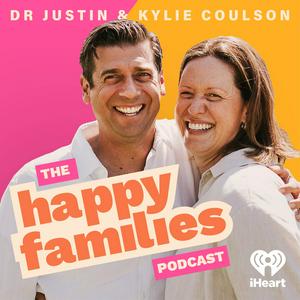
Get the free radio.net app
- Stations and podcasts to bookmark
- Stream via Wi-Fi or Bluetooth
- Supports Carplay & Android Auto
- Many other app features
Get the free radio.net app
- Stations and podcasts to bookmark
- Stream via Wi-Fi or Bluetooth
- Supports Carplay & Android Auto
- Many other app features


Dr Justin Coulson's Happy Families
Scan code,
download the app,
start listening.
download the app,
start listening.





